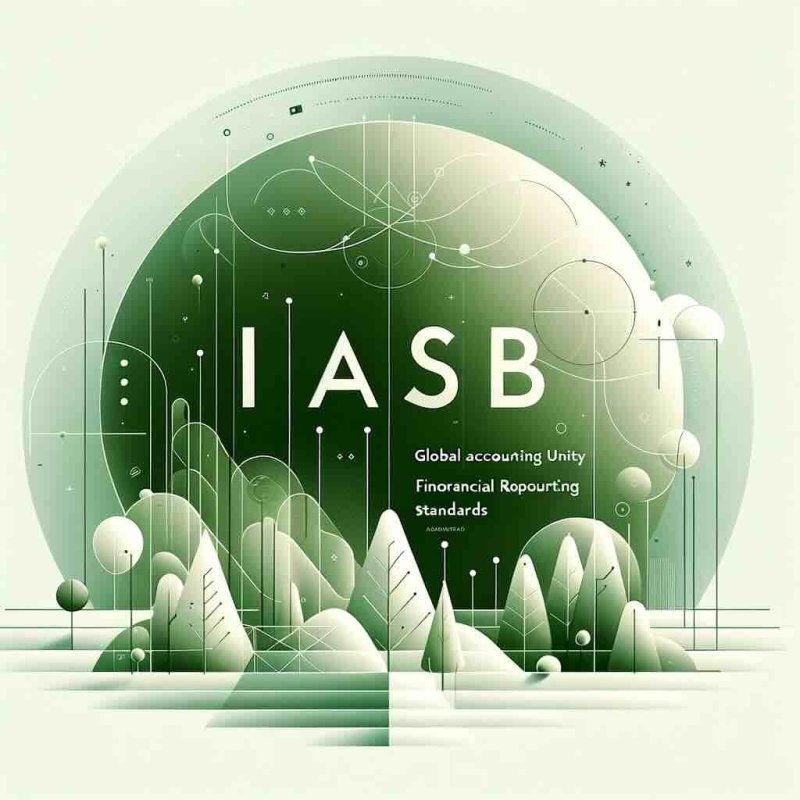Understand your exemptions with the ACCA Exemptions Calculator
ACCA exemptions calculator 2024
The ACCA exemptions calculator is a tool that allows candidates to determine which ACCA exams they are exempt from based on their previous education and professional qualifications. It is used to determine how many ACCA exams a candidate needs to take to become a member of the ACCA.
The ACCA exemptions calculator is available on the ACCA website and can be accessed by anyone interested in pursuing an ACCA qualification. It is a valuable tool for candidates considering pursuing an ACCA qualification and wanting to understand which exams they will need to take to become a member of the ACCA.
On this page
- How are exemptions granted
- Exemptions for Indian students, click below to go directly
-
For Chartered Accountants For AAT For CMA Students For CIMA For Bcom/Mcom students - Exemption fees
- Process to apply for exemptions
- Benefits of exemptions
ACCA exemptions process in a nutshell
The ACCA exemption process is designed to recognize and credit candidates for prior learning and experience relevant to the ACCA Qualification. Candidates who are eligible for exemptions may be able to skip specific ACCA exams and move more quickly through the qualification process, saving time and money in the process.
- Use the ACCA Exemption Calculator to determine if you are eligible for ACCA exemptions.
- If you are applying for the first time, Submit your exemption application via your Myacca application and attach all supporting documentation.
- If you are already enrolled, send an email to students@accaglobal.com along with evidence to claim exemptions.
- Wait for the exemption decision to be made by the ACCA Exemption Department.
- If the application is approved, receive confirmation of exemptions and instructions on proceeding with your ACCA studies.
- Pay the applicable ACCA exemption fees.
- If the application is denied, receive notification of the decision and information on the appeal process.
- Seek guidance and support from the ACCA Exemption Department or other ACCA exemption resources as needed
ACCA exemption eligibility?
Exemptions are granted based on the content and level of the qualification or certification and the relevance of the qualification or certification to the ACCA exams.
In general, ACCA will consider granting exemptions to candidates who have completed the following:
- A recognized university degree or equivalent qualification in a relevant subject area
- A professional qualification from a recognized accounting or finance body, such as the Chartered Institute of Management Accountants (CIMA), the Certified Public Accountants US (CPA), or CA from the Institute of Chartered Accountants in India (ICAI)
- A qualification or certification that is equivalent to one or more ACCA exams in terms of content and level like a Diploma in IFR.
To be considered for exemptions, candidates must provide evidence of their qualifications or certifications and any other relevant documentation to ACCA.
The ACCA exemptions calculator can be used to determine which exemptions a candidate may be eligible for based on their previous education and professional qualifications.
It is important to note that exemptions are not guaranteed and are subject to the discretion of ACCA. Candidates should carefully review the exemptions policy and procedures before applying for exemptions.
ACCA Exemptions calculator for Indian students
The table below shows the exemptions which students with a Bcom or a ICAI qualification can claim
Its to be noted exemptions are granted only if the qualification has been obtained post 2003. For students qualified prior, there are no exemptions.
ACCA Exemptions for CA's
| Subject | CA IPCC | CA from ICAI |
| Business and Technology (BT) | Exempt | Exempt |
| Management Accounting (MA) | Exempt | Exempt |
| Financial Accounting (FA) | Exempt | Exempt |
| Corporate and Business Law (LW) | Exempt | Exempt |
| Performance Management (PM) | Not Exempt | Exempt |
| Taxation (TX) | Exempt | Exempt |
| Financial Reporting (FR) | Not Exempt | Exempt |
| Audit and Assurance (AA) | Exempt | Exempt |
| Financial Management (FM) | Not Exempt | Exempt |
ACCA Exemptions for B.com/M.com
| Subject | B.com/M.com |
| Business and Technology (BT) | Exempt |
| Management Accounting (MA) | Exempt |
| Financial Accounting (FA) | Exempt |
| Corporate and Business Law (LW) | Exempt |
| Taxation (TX) (exempt from Aug 9, 2023) | Exempt |
| Financial Reporting (FR) | Exempt only if completed DIPIFR |
- A CA IPCC student who has written the CA final exams can still claim exemptions if;
- Student has scored above 40 in the subjects they wish to claim the exemption and;
- The Group aggregate of that subject crosses 50%
- In addition if a B.com or a CA IPCC student has cleared the ACCA Diploma in IFR, they claim exemptions from the Financial Reporting (FR) paper.
- Students who wish to take the OBU degree should not claim exemptions. Read our detailed blog on the OBU degree to know more.
- If a student is already registered with ACCA (before 8th August 2023) and have claimed exemptions – TX will not be awarded retrospective
ACCA Exemptions for CMA students
| Subject | CMA/ACMA | FCMA |
| Business and Technology (BT) | Exempt | Exempt |
| Management Accounting (MA) | Exempt | Exempt |
| Financial Accounting (FA) | Exempt | Exempt |
| Corporate and Business Law (LW) | Exempt | Exempt |
| Performance Management (PM) |
Not Exempt
|
Exempt |
| Taxation (TX) | Exempt | Exempt |
| Financial Reporting (FR) |
Exempt
|
Exempt |
| Audit and Assurance (AA) | Not Exempt | Exempt |
| Financial Management (FM) |
Exempt
|
Exempt |
ACCA Exemptions for AAT (Association of Accounting Technicians)
If you've completed the AAT qualification, you're eligible for several exemptions in the ACCA qualification:
| Subject | AAT |
|
Business and Technology (BT)
|
Exempt |
| Management Accounting (MA) | Exempt |
| Financial Accounting (FA) | Exempt |
| Corporate and Business Law (LW) | Exempt |
ACCA Exemptions for CIMA (CHARTERED INSTITUTE OF MANAGEMENT ACCOUNTANTS ,United Kingdom)
| Subject | CIMA |
|
Business and Technology (BT)
|
Exempt |
| Management Accounting (MA) | Exempt |
| Financial Accounting (FA) | Exempt |
| Performance Management (PM) |
Not Exempt
|
| Financial Management (FM) |
Exempt
|
ACCA exemption fees
The fees for ACCA (Association of Chartered Certified Accountants) exemptions vary depending on the number of exemptions sought and the candidate's location.
The fees for ACCA exemptions per subject in India are as follows:
- Applied Knowledge level: £84 or approx INR 8,700
- Applied Skill level: £111 or approx INR 11,500
It is important to note that these fees are non-refundable and are payable when submitting the exemption application. Candidates approved for exemptions will not be required to pay additional fees to sit the exempted exams.
Some ACCA-approved learning providers may offer exemptions as part of their course packages, which could save you money on exemptions fees. Read here to see the savings you can claim.
Process for students to avail exemptions
To claim exemptions from ACCA (Association of Chartered Certified Accountants) exams, candidates must follow the following process:
Determine which exemptions you may be eligible for: Use the ACCA exemptions calculator to determine which exemptions you may be eligible for based on your previous education and professional qualifications.
- Gather necessary documentation: You will need to provide evidence of your qualifications or certifications, along with any other relevant documentation, to support your exemptions application. This may include transcripts, certificates, or other documentation from your educational institution or professional body.
- Complete the exemptions application form: You will need to complete the ACCA application form and submit it, along with the required documentation and fees, to ACCA.
- Wait for a decision: ACCA will review your exemptions application and make a decision on whether to grant the exemptions. This process can take up to two weeks.
- If your exemptions are approved, you will need to pay the exemption fees within thirty days.
Benefits of claiming ACCA exemptions
There are several benefits to claiming exemptions from ACCA (Association of Chartered Certified Accountants) exams, including:
- Saving time and money: Exemptions can save candidates time and money by allowing them to skip exams that they have already passed or for which they have equivalent knowledge.
- Streamlining the qualification process: Exemptions can help candidates streamline the process of completing the ACCA qualification by allowing them to focus on exams that are more relevant to their interests or career goals.
- Recognition of previous education and experience: Exemptions can recognize and validate a candidate's previous education and professional experience, which can be beneficial for career advancement.
- Improving confidence and motivation: Exemptions can boost a candidate's confidence and motivation by allowing them to focus on the exams that are most relevant to their needs and interests.
- Enhancing employability: Claiming exemptions can enhance a candidate's employability by demonstrating their knowledge and expertise in specific areas of accounting and finance.
Pass the ACCA Diploma in IFRS exams with us in your first go
Summing up
The ACCA exemptions calculator is a valuable tool for candidates wanting to understand which exams they need to take to become a member of the ACCA. It is available on the ACCA website and can be accessed by anyone interested in pursuing an ACCA qualification.
Candidates considering pursuing an ACCA qualification should use this tool to better understand the path ahead of them.
Those looking to save on exemptions can speak with an Eduyush counsellor or go to our exemptions section to see how they may be able to do so.
ACCA Exemptions. Questions? Answers.
The answer to this lies in your context and individual objectives. Theres no one answer for all.
Read our detailed blog on whether ACCA is worth doing after a CA here
For IPCC pass students, you get exemptions from six papers. You will be required to write three exams at the skill level and four exams at the strategic level.
If you have attempted your CA Final and scored 50% in Performance Management, Financial Reporting or Financial Management, you will also be eligible for exemptions in these.
If you are planning to take up ACCA, its always better to start it after your CA for the following reasons
1) You will be exempt from the Applied Knowledge and Applied Skill level exams. So that's nine out of thirteen papers
2) Scholarships are better for a CA than others
3) Focus on clearing your CA first, as doing together both will take away your focus from both.
Take the ACCA during your CA only if you are planning to give up taking the CA exams altogether.
The answer is Yes and No
Yes :
1) Your conceptual clarity needs to be higher
2) The ACCA strategic professional level exams are case study based. This will require skillsets in exam technique and communication
3) Rote learning will not help
4) Marks are awarded for good and bad answers rather than the solution.
No:
1) Unlike CA, you don't need to write in groups. so you can schedule one exam at a time and clear it. You need to score 50% to clear the subject individually
2) You can schedule your papers quarterly
3) Plenty of ACCA resources on-site that will guide you on how to plan your studies.
To become a member of ACCA and qualify as a professional accountant, your must complete the Practical expereince Requirements (PER).
There are three components to the PER:
1) completing 36 months' employment in an accounting or finance-related role or roles
2) achieving five Essentials and at least four Technical performance objectives to the satisfaction of your practical experience supervisorrecording and
3) reporting your PER progress through the onlineMy Experiencerecord.
Since you are already a CA, your articleship expereince should siffuce all points especially towards point 1 and 2. If you are missing out on any of objectives in point 2, you can still gain that though work expereince.












Leave a comment